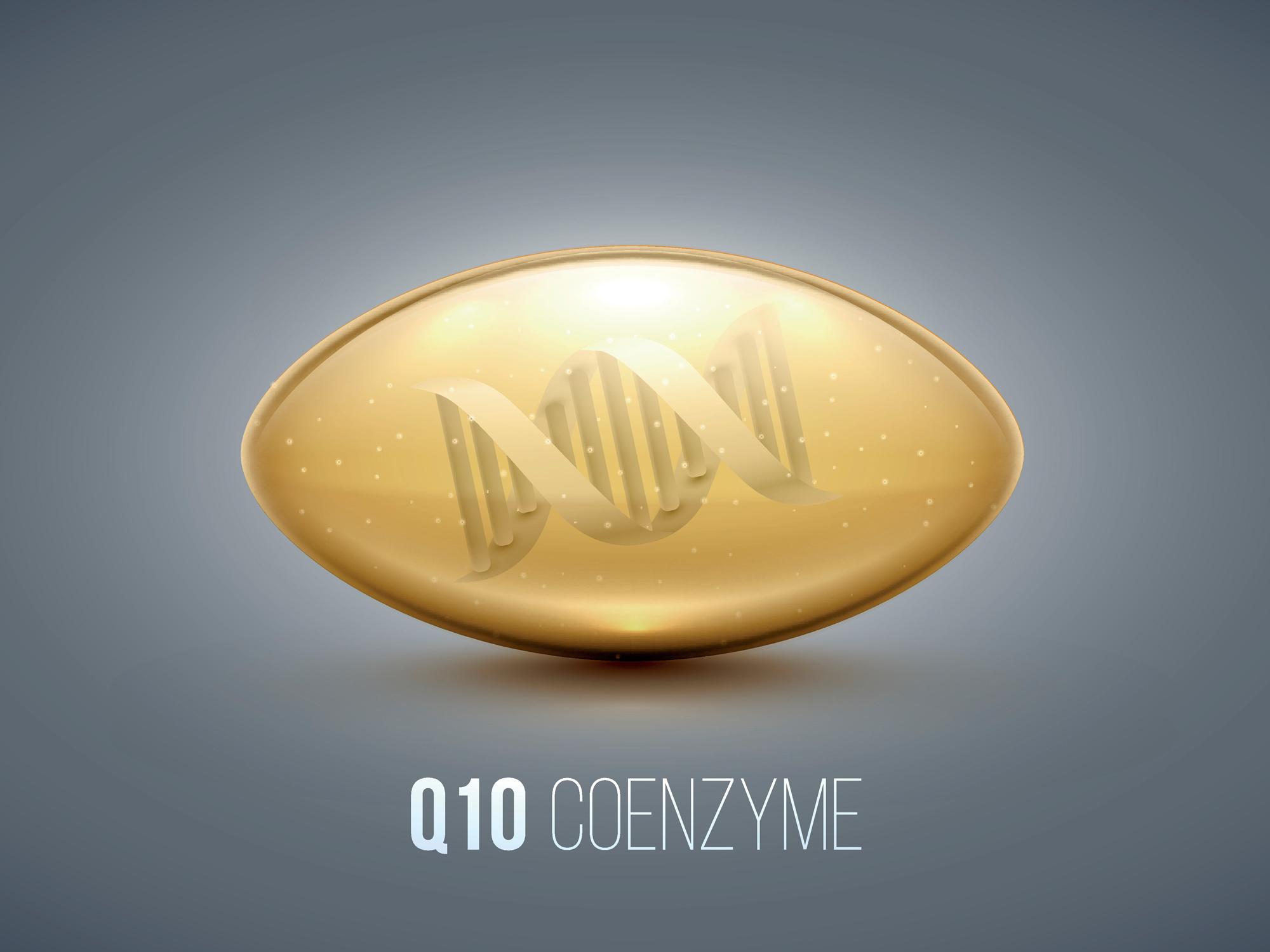Get Easy Health Digest™ in your inbox and don’t miss a thing when you subscribe today. Plus, get the free bonus report, Mother Nature’s Tips, Tricks and Remedies for Cholesterol, Blood Pressure & Blood Sugar as my way of saying welcome to the community!
2 major reasons you need more CoQ10

You’ve probably heard of CoQ10 (short for Coenzyme Q10) and have wondered, “Do I really need to take it?”
After all, if you’re like me, you already take multiple supplements every day. And, sometimes it feels like having to swallow even one more is just too much.
However, in the case of CoQ10, you’re going to want to make an exception…
That’s because not only does it offer some big, big benefits, there are a couple of factors working against you that keep your body from getting the CoQ10 it needs to promote your overall health.
Let’s take a closer look…
What is CoQ10?
CoQ10 is an essential nutrient that works like an antioxidant in your body.
In its active form, it’s called ubiquinone or ubiquinol. It’s actually synthesized within your body naturally and is used for many important functions — from helping you digest your food properly, to improving your body’s use of vitamins like C and E and preventing damage caused by nasty free radicals.
It’s also known for promoting heart health, slowing down the effects of aging and supporting your cognitive health.
But, most notably, CoQ10 supplies your cells with energy. In fact, CoQ10 is responsible for providing an energy spark to all 100 trillion of your body’s cells, producing 95 percent of your body’s energy.
But, why do I need to supplement it?
Still, even with all of its benefits, you’re probably wondering why you need to take a CoQ10 supplement if your body makes the nutrient.
Here are a couple of reasons…
Firstly, your body slows down CoQ10 production substantially after the age of 40. When you’re young, your liver produces CoQ10 in the amounts necessary to give strength and energy to the muscles and cells of your body. But the body’s natural production of CoQ10 starts diminishing at about age 20. By age 80, CoQ10 production has dropped by a whopping 65 percent.
Secondly, there are many medications that deplete it as well. If you are on any one of them, you’re CoQ10 levels are likely suboptimal.
Take a look at the following list of everyday, common medications that lower the amount of CoQ10 in your body …
- Antidepressant Medications – including Amitriptyline, Amoxapine, Clomipramine, Desipramine, Doxepin, Imipramine, Nortriptyline, Protriptyline and Trimipramine
- Antidiabetic Medications – including Sulfonylureas, Acetohexamide, Chlorpropamide, Glipizide, Glyburide, Tolazamide and Tolbutamide
- Cardiovascular Medications – including Alpha2-Adrenergic Agonists, like Clonidine, Beta-Blockers, like Acebutolol, Atenolol, Betaxolol, Bisoprolol, Carteolol, Celiprolol, Esmolol, Labetalol, Levobetaxolol, Levobunolol, Metipranolol, Metoprolol, Nadolol, Penbutolo, Pindolol, Propranolol, Sotalol, Timolol, and vasodilators, like Hydralazine.
- Cholesterol-Lowering Medications – including Fibric Acid Derivatives, including Gemfibrozil and statins, like Atorvastatin, Cerivastatin, Fluvastatin, Lovastatin, Pravastatin and Simvastatin.
- Diuretics – including Thiazide diuretics, like Chlorothiazide, Hydrochlorothiazide, Indapamide, Methyclothiazide and Metolazone.
- Psychotherapeutic Medications – including Phenothiazine derivatives, like Chlorpromazine, Fluphenazine, Mesoridazine, Perphenazine, Prochlorperazine, Promazine, Thioridazine, and Trifluoperazine as well as Thioxanthene derivatives, like Thiothixene.
So, if you’re taking a medication on this list or are over the age of 40, you should be working to get more CoQ10 in your daily diet.
There are two ways to do this – through food and using a supplement.
Foods that are rich in CoQ10 include:
- Sardines
- Mackerel,
- Broccoli
- Pistachio nuts
- Cauliflower
- Grass-fed beef
- Chicken
If you’re relying on food sources to boost your CoQ10, you’ll need to add some healthy fats to your diet to help your body absorb the nutrient.
Another option is taking a quality CoQ10 supplement to ensure you’re levels are optimized. Look for one that contains a little dose of healthy fat to ensure your body absorbs as much of the high-potency CoQ10 as possible.
Supplementing important nutrients can do wonders for how you feel and enjoy life — and CoQ10 is certainly vital for that.
Editor’s note: There are perfectly safe and natural ways to decrease your risk of blood clots including the 25-cent vitamin, the nutrient that acts as a natural blood thinner and the powerful herb that helps clear plaque. To discover these and other secrets of long-lived hearts, click here for Hushed Up Natural Heart Cures and Common Misconceptions of Popular Heart Treatments!
Source:
Coenzyme Q10 Therapy—Molecular Syndromology












